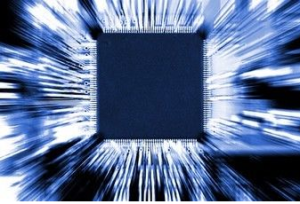
Russian Bank Funds In-Memory Vendor GridGain

Russia’s largest bank helped lead a funding round disclosed this week by in-memory computing specialist GridGain.
Moscow-based Sberbank, an early GridGain customer, led a $15 million funding round along with MoneyTime Ventures. Almaz Capital, which has offices in Silicon Valley and Moscow, along with RTP Ventures, also joined the Series B funding round. RTP, too, has Russian roots. A MoneyTime Ventures partner will join the company’s board.
GridGain, Foster City, Calif., said Thursday (Feb. 18) the cash infusion would be used to expand product development around its in-memory data fabric technology based on the Apache Ignite open source project. The company announced in November 2014 that its data fabric code had been accepted under the Ignite incubator program.
The goal is to broad adoption of open source in-memory data fabric platform that would enable a new class of transactional and analytical applications based on Apache Ignite. “Apache Ignite has all the right ingredients to become for the fast data world of the future what Hadoop is for big data today,” according to Nikita Ivanov, GridGain’s founder and CTO.
The investment also reflects bullish forecasts for in-memory computing market. GridGain cited a Gartner estimate that the market would grow to $10 billion by 2019.
The company’s data tools are designed to connect traditional and emerging data stores (SQL, NoSQL and Hadoop) with cloud-scale applications, thereby enabling increased data throughput and reduced latencies across scalable clusters of commodity servers.
GridGain released the most recent version of its in-memory data fabric based on Apache Ignite earlier this month. Among the upgrades was the elimination of transaction “deadlocks” that result when the same objects are concurrently updated in a different order by different transactions. Transactions begin to indefinitely wait on each other to complete, causing deadlock scenarios. In production, the delays would require a full cluster restart.
GridGain claims its commercial distribution of Apache Ignite makes transaction deadlocks “impossible” by eliminating them altogether. Its in-memory approach gives all transactions a chance to “succeed” until it becomes impossible to logically order a transaction. The company refers to its approach as allowing the transaction to “optimistically fail,” then trying again.
This “optimistic-serializable consistency model” is estimated to be about 50 percent faster than simply grinding away until a transaction deadlocks.
GridGain is the organizer of an annual in-memory computing conference scheduled for May 23-34 in San Francisco. The conference includes presentations by competitors like Hazelcast. Proponents of in-memory computing note that GridGain’s approach leverages current developer skills while accelerating existing Hadoop applications. That, they argue, will help ease the transition to in-memory computing.
Meanwhile, GridGain is among a handful of emerging analytics companies with Russian roots. Sberbank was founded in the 1840s by Czar Nicholas I.
Recent items:
In-Memory Computing Goes Open Source
The Evolution of In-Memory Computing



























